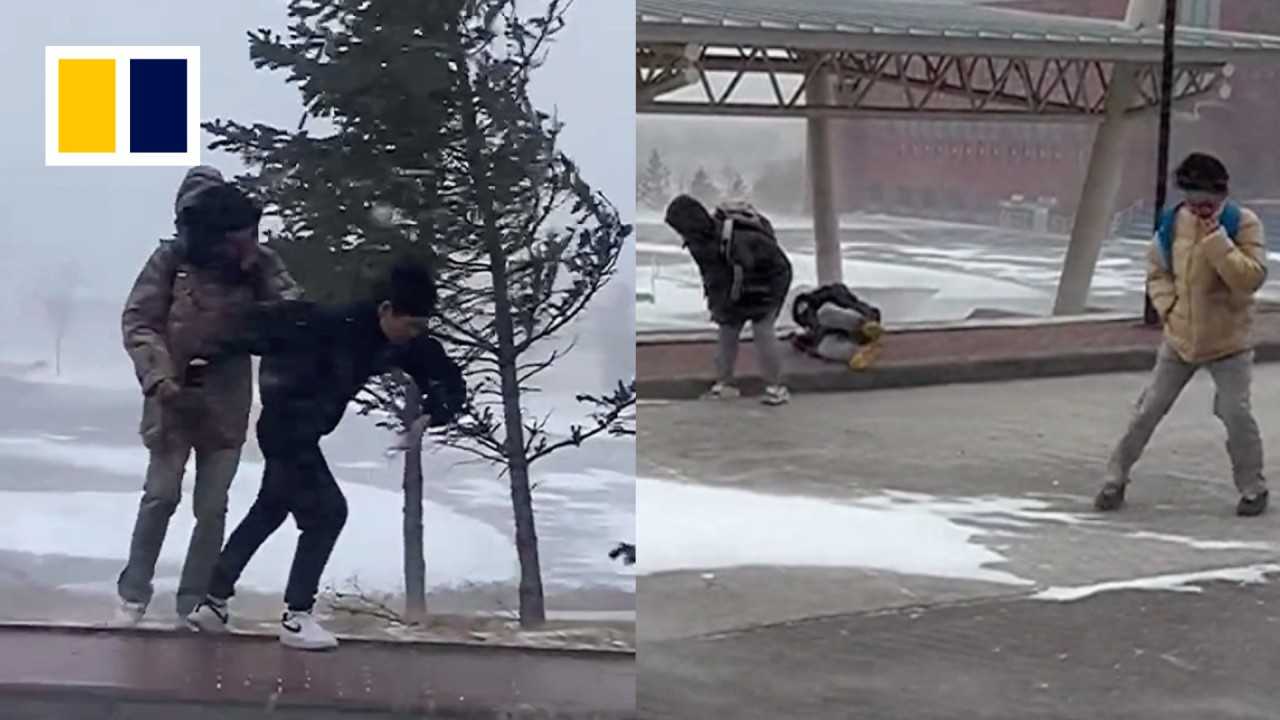
Blood supplies running low across China as cold weather and surge in respiratory illnesses take toll
- Authorities in some of the country’s biggest provinces appeal for donations as stocks start to run short
- Local authorities warn shortages are threatening operations as temperatures ‘drop off a cliff’
Local authorities and blood centres in several of the biggest provinces, including Henan, Shandong, Fujian, Hubei and Shanxi, have warned of a sharp drop in the number of donations and appealed for people to contribute.
According to state-controlled news outlet ThePaper.cn, blood stocks in Xinxiang, a city in Henan province, were running so low that they threatened the supply for operations and other hospital needs.
The city’s publicity department and local Red Cross Society issued an urgent appeal on Friday, saying demand was surging but fewer people were donating because it was winter.
Yuncheng, a city in the central province of Shanxi, issued a similar appeal for donors, saying donations had fallen dramatically after temperatures “dropped off a cliff” while respiratory illnesses surged.
“The number of people choosing to have surgery has greatly increased ... and clinical blood consumption has been running at a high level, resulting in severe difficulties and challenges in meeting the blood demand,” the centre told ThePaper.
China relies on voluntary donors for blood supplies and had a similar shortage crisis a year ago when Covid-19 cases soared following an abrupt end to most pandemic controls. That prompted the authorities to relax the guidelines on giving blood.
Yanzhong Huang, a senior fellow for global health at the Council on Foreign Relations and a professor at the school of diplomacy and international relations at Seton Hall University, said China’s blood capacity was always “seasonal”.
“When the temperature starts to drop in autumn and winter, the number of people on the streets decreases, causing blood donor numbers to decline,” Huang said.
“Meanwhile, China rules that people with a cold, flu, or a sore throat are ineligible to donate blood. Therefore, a lot of infected people during the flu season may not meet the conditions to donate blood.”
Huang added that there were also suspicions about whether donating blood would lower immunity, making healthy people hesitate to donate. “These reasons are similar to those behind the blood shortage during the Covid-19 era,” he said.
The latest calls for blood donors were met with scepticism on social media, with many raising doubts about the fairness of the voluntary blood donation system.
“People would be more willing to give were it is not so difficult for those voluntary donors and their families to use blood,” one user commented on Weibo.
Northern China on alert for snow onslaught and record low temperatures
Another user said cadres and party members should take the lead in giving blood.
They also pointed to recent reports that a young woman from Shanghai who had been injured in a car crash in Tibet in October was allegedly given preferential treatment.
The authorities have been forced to deny claims that local state employees – including police officers and firefighters – were forced to give blood for the woman, saying those people had volunteered to help.
But the official story has not won over everybody. As one Weibo user put it: “One should give blood selflessly when there is a need. But when we need something, our demand is often dismissed as unreasonable.”



